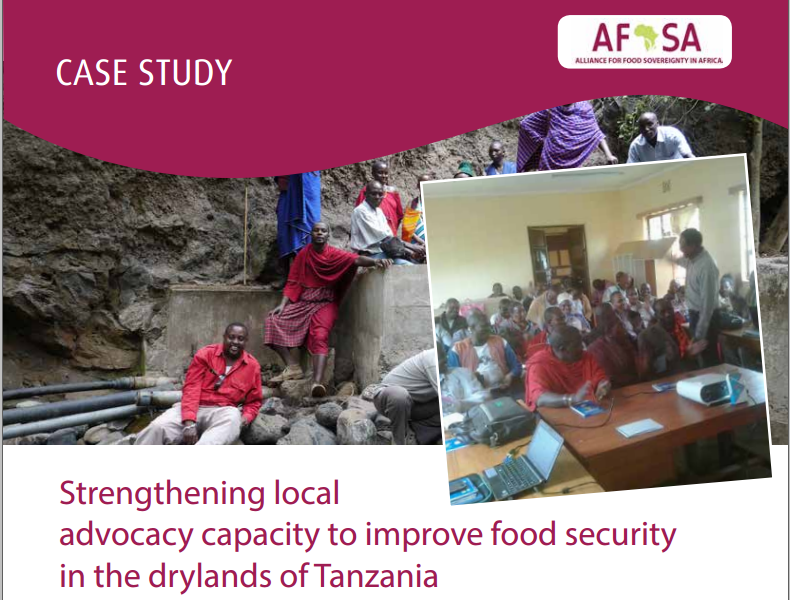Home |Strengthening local advocacy capacity to improve food security in the drylands of Tanzania
Strengthening local advocacy capacity to improve food security in the drylands of Tanzania
Body:
Background
This initiative on strengthening policy engagement capacity to improve food security was a three-year project from 2013 to 2016. Funded by the European Union, it was implemented jointly by the International Union for Conservation of Nature (IUCN) and the Tanzania Natural Resource Forum (TNRF) in Longido District in northern Tanzania. The district was chosen given the severe state of food insecurity amongst the pastoral communities residing there, as determined by a study. Longido District is a semi-arid district lying in the northern part of Tanzania bordering Kenya. The annual rainfall ranges from 450 to 500 mm per annum with an average temperature of 240C to 270C. Majority of the inhabitants are pastoral and agro-pastoral communities whose main livelihood is livestock-keeping. Few on the western part of the district practice crop farming to supplement livestock-keeping.
Project Objectives and Strategies
The overall objective of the project was to have an institutional environment in Tanzania that recognised the value of local participation and knowledge in attaining sustainable and resilient food security for pastoralist communities. In order to contribute to this overall goal, the specific objective of this project was to strengthen the engagement and coordinatioof pastoral associations in local and national decision-making processes to promote the effective implementation of ecosystem-based approaches to food security.The project targeted pastoral associations and other community-based organisations (CBOs) which worked with dryland communities on poverty alleviation and sustainable livelihoods. A key strategy was to build the capacity of these local institutions to effectively engage with and represent their communities in policy processes. The project sought to build institutional and strategic capacities, develop advocacy messages and positions, and support the linkages of institutions and communities to build collective voices from local to national levels.

